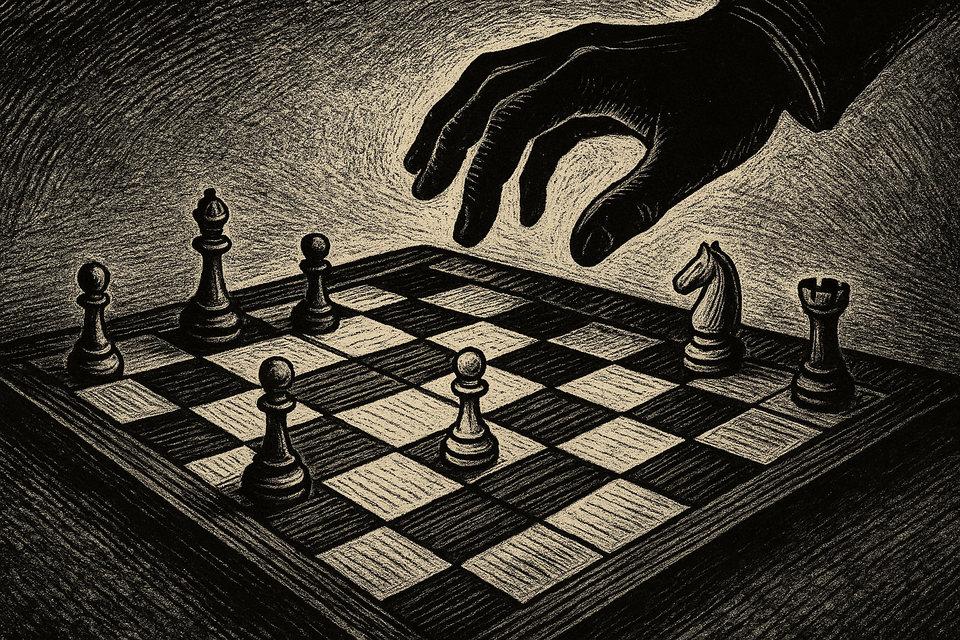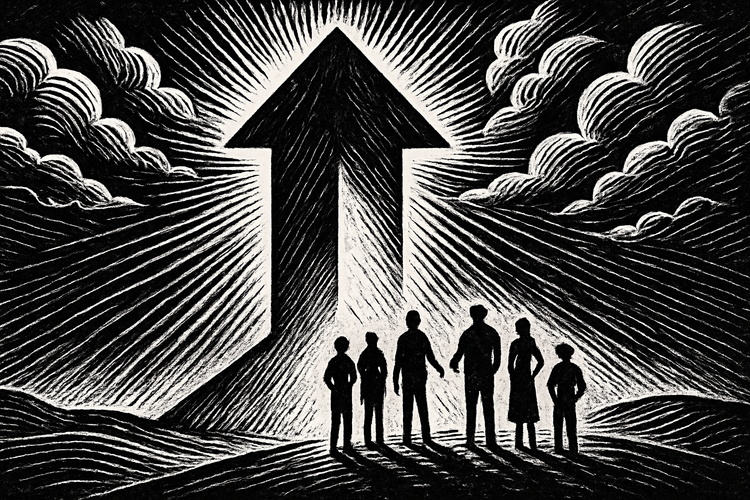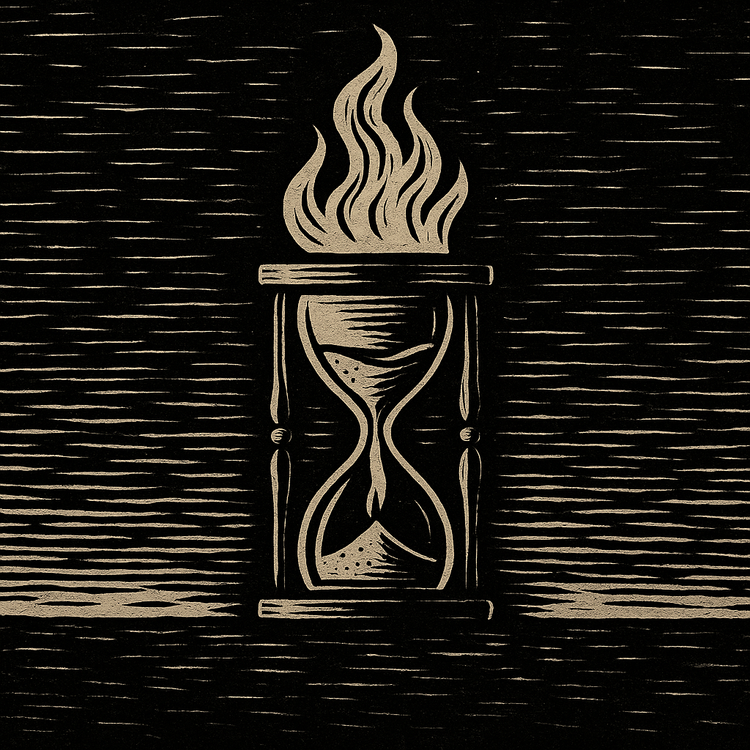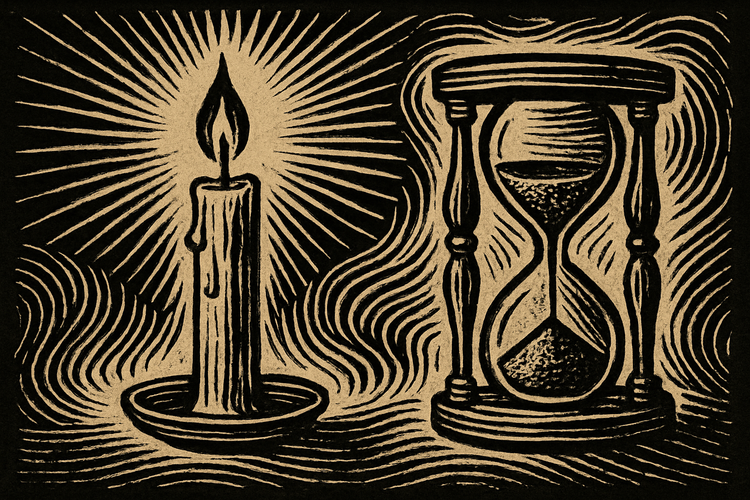The Architecture of Choice: A Cornerstone on The Good Place S2

Spoiler Warning: This reflection contains full spoilers for The Good Place, including retrospective insights and thematic allusions. It assumes familiarity with the entire series and is written from the perspective of a rewatch.
From its very first reset in Everything is Great!, Season 2 of The Good Place plays like a magician’s act in reverse — the trick is fully explained, yet still fails to work. Michael’s “new and improved” neighborhood is sharper, meaner, and more intricately designed than before, but it collapses almost instantly. What should be the perfect con unravels under forces he can’t quite measure: Eleanor always finds Chidi, Tahani and Jason’s orbits cross, Janet’s programming intrudes at inconvenient times. It’s as if the universe itself rejects the design, tugging these four humans back toward each other with invisible threads.
By the end of Dance Dance Resolution, the pattern is undeniable. We’ve seen hundreds of reboots, some collapsing in seconds, others limping along before the same gravitational pull snaps the architecture apart. Michael’s desperation mounts, the demons under his command mutiny, and even “Real Eleanor” threatens to seize control. But the cosmic balance doesn’t blink. This isn’t a fair fight — it’s a stress test, and the stress is breaking him.
These opening episodes show more than just repeated comedic failure; they expose the limits of Michael’s control. His initial arrogance assumes that more precision, more cruelty, and more elaborate psychological traps will keep the humans off-balance. But the faster each version collapses, the more the mask slips. By reboot thirty, he’s impatient; by reboot one hundred, he’s improvising wildly; by reboot three hundred, the very act of planning starts to feel futile. That creeping awareness — that there may be forces at work he can’t calculate — plants the earliest seeds of the change we’ll see by season’s end.
The first episodes aren’t just slapstick failures — they’re a kind of proof. The Unseen Hand we’ve been tracing throughout the season isn’t omnipotent, but it’s persistent. No matter how Michael rewrites the rules, the architecture buckles the same way: Eleanor finds Chidi, trust forms, and the system destabilizes.
In Team Cockroach, necessity finally bends the two sides toward an alliance. Faced with the “real” Bad Place — scorpion volcanoes and worse — the humans agree to work with Michael. Kant’s imperative, “It is our duty to improve ourselves,” slips into the background of the deal. This isn’t just about survival anymore. It’s a setup where moral growth becomes the only viable long-term strategy, even for the demon who built the trap.
But if the Hand’s goal is to position players, not guarantee victories, these early resets serve their purpose. The board is now arranged for something new: shared risk, shared learning, and the possibility of change for all five.
One of Season 2’s strengths is that it doesn’t treat philosophy as a garnish. The big ideas get tested in the field, often under pressure that strips away their academic neatness.
In The Trolley Problem, Chidi’s carefully drawn diagrams give way to Michael’s gleefully sadistic simulations. The stakes go from abstract to personal in an instant — faces you know on the tracks, families staring you down in hospital corridors. By the end, the only lesson that lands is that ethics bite harder when they cost you something.
In Derek, the Doctrine of Double Effect surfaces in a different form. Is it acceptable to cause certain harm — ending Jason and Tahani’s relationship — to avoid a larger catastrophe? The heartbreak isn’t the goal, but it’s guaranteed. Here, moral strength is defined not by how you act when everyone’s calm, but by what you do when every choice will wound someone.
And in Rhonda, Diana, Jake, and Trent, the clash between Kant’s absolutism and moral particularism takes center stage. Chidi’s “no lying ever” collides with Eleanor’s “context matters” in a Bad Place museum filled with petty torments. By the end, Chidi has bent, Michael has sacrificed himself to solve the trolley problem for real, and the episode crystallizes the season’s growing point: rules alone aren’t enough — you have to meet the moment.
Season 2 makes the Unseen Hand feel almost tangible without ever pinning it down. It’s in the disproportionate power of a note reading “Find Chidi” in Everything is Great!; in the fact that, across hundreds of reboots in Dance Dance Resolution, the same connections re-form; in Michael’s carefully coded “Leap to Faith” in Leap to Faith, where he delivers hope in plain sight without blowing his cover.
This current doesn’t force outcomes. It just keeps putting the right people in the right rooms, over and over, until choice becomes inevitable. By Best Self, the group has internalized that rhythm. Even stripped of a clear plan, they choose to move forward together into the Bad Place, not because success is certain, but because standing still isn’t an option.
The Hand doesn’t just shape the humans — it presses against the walls of the afterlife itself. Michael begins to see that the point system is fundamentally flawed, condemning countless people who could have improved given the chance.
Judge Gen, introduced in The Burrito, embodies the system’s mix of authority and arbitrariness. She’s absorbed everything about the humans’ lives, yet still insists on fresh tests — a sign that readiness, not lifetime score, is the real metric. Janet, in Janet and Michael, becomes another focal point. As the truth-bound builder of the neighborhood, she’s less a moral arbiter than a stabilizing force, an agent whose inability to lie suggests a structural role in whatever balance governs this world.
These cracks aren’t just narrative beats — they hint that the afterlife’s machinery might itself be subject to the same unseen currents that keep pulling the humans toward change.
Through all twelve episodes, Eleanor emerges as the one most consistently able to make live choices that match her growth. Her pass in The Burrito is the clearest example. Faced with a false Chidi urging her to abandon the others, she refuses — not because she thinks it will save her, but because it’s who she’s become. In a season so concerned with the mechanics of moral philosophy, this moment resonates: Eleanor has internalized that morality isn’t about the points she’ll earn, but about the person she’s choosing to be in the moment.
This readiness stands out more sharply when contrasted with Jason, Tahani, and Chidi’s test failures. They’re still tripping over the same flaws they’ve carried all season, while Eleanor has learned to spot and resist the patterns that once defined her. Her arc becomes the clearest case study for the season’s central question: if the system is flawed, if rewards aren’t guaranteed, and if the Hand can only position you rather than carry you, then what is virtue for? For Eleanor, the answer seems to be that it’s worth choosing the right thing even if no one is watching — especially if no one is watching.
Perhaps the most satisfying arc of Season 2 is Michael’s. In The Trolley Problem, he treats ethics like a game. In Rhonda, Diana, Jake, and Trent, he sacrifices himself without hesitation. By Somewhere Else, he’s working within the constraints of the human condition, nudging Eleanor toward Chidi with nothing more than a conversation at a bar.
That last moment literalizes the Unseen Hand. Michael isn’t the Hand itself — he’s been shaped by it, learned from it, and now chooses to act in its style. He creates an opening, but the choice remains Eleanor’s. The manipulator has become a participant, bound by the same uncertainty that defines human moral life.
Season 1’s game board was a static illusion. Season 2 dismantles it piece by piece, replacing it with something messier: a living experiment where outcomes can’t be guaranteed and readiness matters more than record.
By the finale, the Hand’s role feels both clearer and more mysterious. It positions, reveals, and times interventions without ever dictating the end. Its influence is in the way failure comes with perfectly timed arrivals — Janet and Michael at the close of The Burrito — and in the way choice always reasserts itself.
Season 3 will inherit this setup. The stakes are no longer just whether four humans can reach the Good Place. The question now is whether the system itself can survive the truths the Hand has been surfacing all along.
If you’ve followed the threads in Existential Crisis, The Burrito, or Somewhere Else, you’ll see them all converging here: mortality as the start of morality, readiness over lifetime score, and intervention as invitation, not command. Season 2 doesn’t close those loops — it leaves them humming, ready to pull everyone forward again.



Comments ()